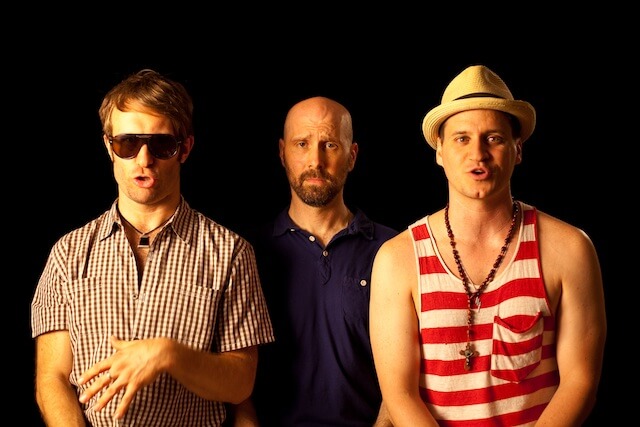‘Do I Sound Gay?’ At first it sounds like a minor problem. David Thorpe, documentarian and star of “Do I Sound Gay?”, worries that he sounds gay. He has a lisp and superficially “effeminate” phrasing that betray his sexuality. He wants to get rid of it, however he got it in the first place. He also, when the film begins, recently broke up with his boyfriend, so there’s that. Little of this personal stuff, on the face of it, sounds like it could sustain 20 minutes, let alone almost 90. And yet give the idea of a “gay voice” more than a cursory thought and you can see why it makes for a fascinating cine-essay that, one that might even, at almost an hour and a half, seem too short, if anything. What “Do I Sound Gay?” really is is a look at homosexuality (mostly the male variety) well into the 21st century. Thorpe’s film was locked well before marriage equality went nationwide, but even then it entered a culture that had taken great strides in acceptance since the filmmaker’s youth. Thorpe worries that he sounds gay, then worries that he worries that he sounds gay. This is a mere jumping off point to a restless survey that bobs and weaves through a topic that, despite the relative tolerance of today, is still a complicated issue, built on a history that’s even more checkered than we may think. Indeed, Thorpe looks at the past, when homosexuals were ostracized, and worse — and yet lovable coded gay people and movie characters have long been staples of entertainment. Charles Nelson Reilly and Paul Lynde swished it up on TV to the delight of millions. Few surely doubted their bedroom habits, and many would vote against their basic civil rights, and yet they turned them into ubiquitous stars. (On the flip side, there are plenty of coded gay villains, from Clifton Webb in “Laura” to Jafar in Disney’s “Aladdin.”) Today, however, is mostly about conforming, if not desexualizing. As Thorpe takes voice lessons to “fix” his speaking habits, he looks at people like Don Lemon and Anderson Cooper, prominent gay men who have not only adopted an American version of the accent that in the U.K. is called “BBC English,” but have utterly removed any traces of classically gay mannerisms. At the same time he points out that homophobia runs so deep that it occasionally bursts out in routines by Tracy Morgan and Louis C.K. (Excepting Rush Limbaugh, Thorpe mostly steers clear of what the far right have to say, which is for all our benefits.) Thorpe keeps piling on issues and problems until it becomes clear that, no matter what supreme court decisions tell us, we’re really no closer to a utopia where homosexuality is no longer otherized. It’s not just that anxieties over homosexuality are embedded perilously deep in society; it’s that right now it’s not always clear if there is an identity for homosexuals. At the same time, is that a bad thing? Diversity is a wonder, and it can be great that the “normalized” Don Lemon and the still traditionally gay-seeming Thorpe, and many in between these extremes, can exist together. “Do I Sound Gay?” allows for questioning that goes on and on, not falling back on easy solutions but keeping thought alive. It’s more than a doc about being gay; it’s a doc that preaches for intellectual rigor. Follow Matt Prigge on Twitter @mattprigge
Director: David Thorpe
Genre: Documentary
Rating: NR
3 (out of 5) Globes
‘Do I Sound Gay?’ is a deep look at homosexuality today

IFC Films


















